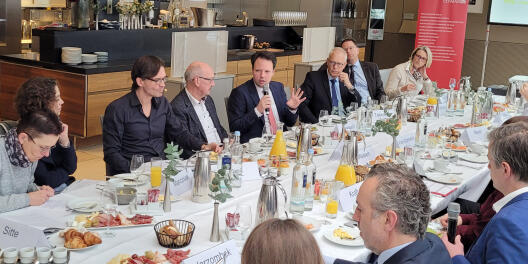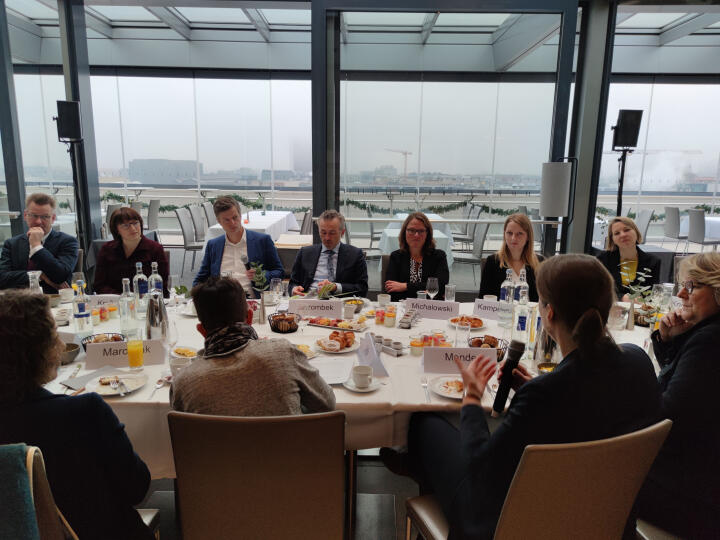MPs and researchers debate empirical findings on identity conflicts
Parliamentary breakfast in Berlin with University of Münster and German U15 on the international study “Defenders and Explorers”

Defenders and explorers: a parliamentary breakfast in Berlin saw members of the Cluster of Excellence discuss with members of the German Bundestag the international survey on the division of European societies into two camps divided according to identity politics. The invitation came from the University of Münster and German U15, an association of 15 major research-intensive and leading medical universities in Germany.
The discussions that the Cluster of Excellence researchers had with the MPs of different political parties focused in particular on what can be done politically to stop polarization, on how the positions of the two entrenched camps (whose existence the study provided empirical evidence of for the first time) can be traced to their functional core, and on how compromises can be found.
One recommendation that the most comprehensive survey on identity conflicts to date makes to politicians is not to take sides with either group. The researchers also drew in the discussions on comparisons between Germany and other European countries, and explored the issue from a historical perspective. Discussion also focused on the integrating role that religion and Christian churches play in modern secularized societies, and on what other forces could play a role here.
Psychology professor Mitja Back presented the results of the study on behalf of the interdisciplinary group of researchers, while speeches of welcome were given by University of Münster Rector Prof. Dr. Johannes Wessels, deputy chair of the Green parliamentary group Maria Klein-Schmeink, and managing director of German U15 Dr. Jan Wöpking.
The Cluster of Excellence was represented by speaker and professor of theology Michael Seewald; deputy speaker and professor of sociology of religion Ines Michalowski; professor of contemporary history Silke Mende; law professor and senate chair Prof. Dr. Hinnerk Wißmann; academic manager Dr. Angela Marciniak; and head of science communication Viola van Melis. Further findings and policy recommendations from the survey on Germany, France, Poland, and Sweden can be read here. (vvm)
Photos











